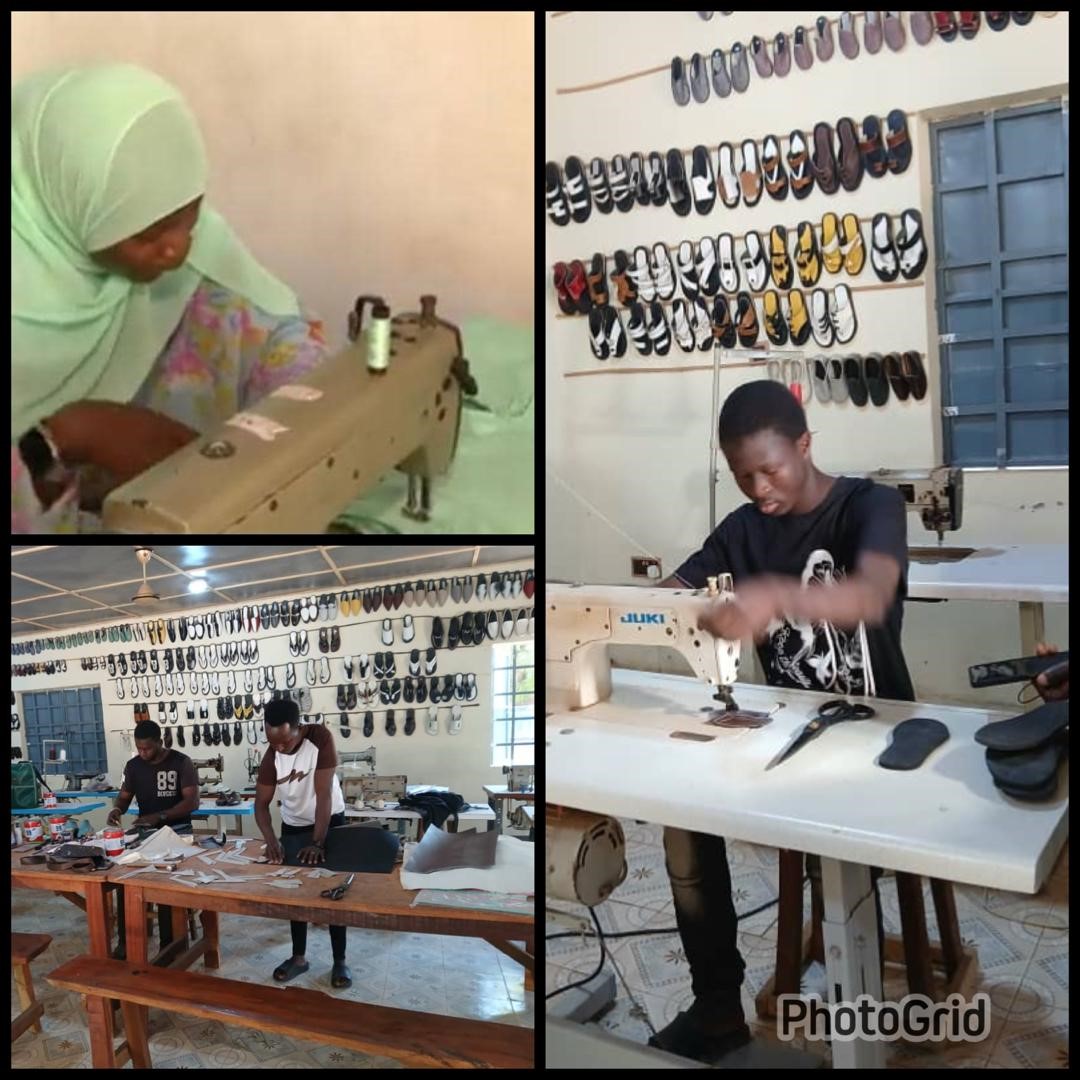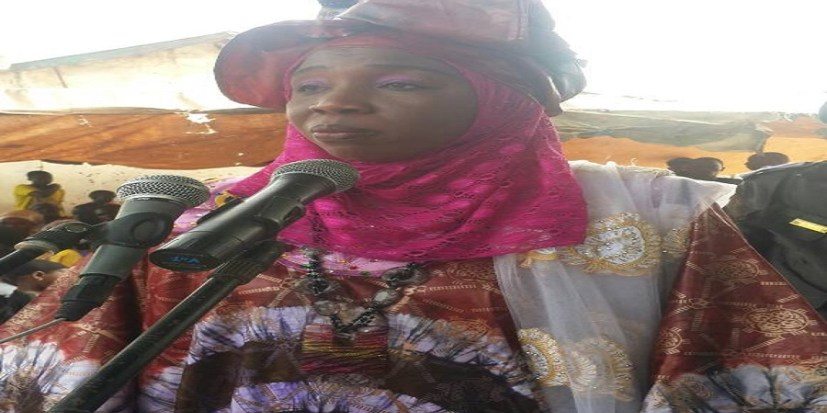By: Nyima Sillah
Young entrepreneur at the Brikama Shoe Making, Training, and Production Centre have significantly boosted shoe production in The Gambia while encouraging youth to embrace skills.
The Centre, supported by ChildFund and Sama Kairo Federation, is part of a broader initiative to complement the government’s efforts in promoting youth empowerment and economic development across the country.
The Centre has equipped young people with the skills to produce high-quality, made-in-Gambia shoes for both children and adults.
Ebrima Baldeh, Manager of the Centre, shared that they produce shoes of excellent quality that meet market standards. People from both within and outside the country purchase their products, with many placing orders online.
“We envision expanding this skill center to all seven regions. Our primary goal is to reduce the need to import shoes from other countries. We want to produce and wear our own shoes,” he expressed.
He went on to explain that the shoemaking business is both unique and rare in the industry, with high demand, as everyone needs shoes. However, he noted that many youths are not eager to learn such skills. “We started with 18 trainees, but now only three remain. The females are particularly interested, and they are working hard to learn these skills,” he confirmed.
He encouraged young people to take skills development seriously, stressing that it is a better option than irregular migration. “The ‘back way’ is not the only solution. It’s a dangerous journey. We can succeed here in The Gambia. We must believe in ourselves and our potential,” he added.
The manager outlined their challenges saying “Our main challenges are access to materials and slow marketing, as many Gambians are still hesitant to support Made-in-Gambia products and prefer to buy from abroad.”
Musa Jallow, a skilled shoemaker, explained that the shoemaking process begins with using foot-moulds to design shoes. “Once you create a design, you transfer it to paper, then to leather, and use machines to assemble it. Finally, the shoes are finished, with all sizes available to meet customer preferences,” he said.
Musa Demba, a trainee, emphasized the importance of acquiring skills rather than relying on irregular migration. “The ‘back way’ is not the solution. We can solve our problems by gaining skills. With my skills, I don’t want to go through the ‘back way.’ I aim to open my own workshop and create job opportunities for fellow youth,” he explained.
Gibril Fatty, a community mobilizer, said the program created job opportunities for local youth, many of whom previously struggled to find employment. “Our goal is to expand this program to other federations and regions. This will create even more employment opportunities for youth and encourage self-employment,” he said.
Musu Banja, one of the ChildFund’s sponsored children, who ventured into tailoring after completing various courses in entrepreneurship and skills development, emphasized that knowledge alone is insufficient without practical skills.
“Some people finish school but don’t engage in any work because they lack skills. Others have skills but don’t know how to showcase them. For me, tailoring is typically dominated by men, but I am passionate about it. Despite facing challenges and doubts from others, I remain committed to my craft. One day, I hope to expand Banja’s Creation to a global platform,” Musu shared.





